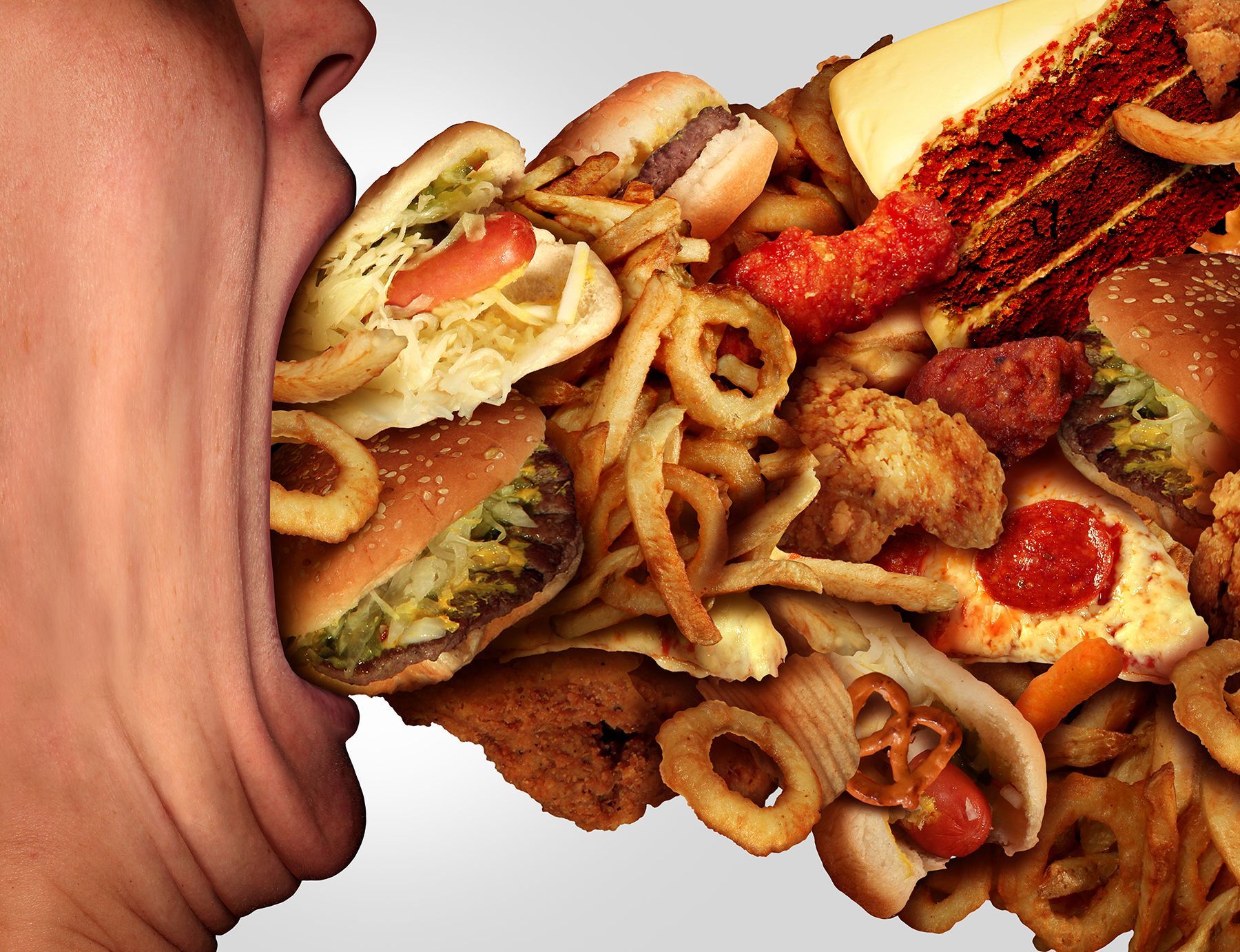Unlocking the Secret to Successful New Year Weight Loss Resolutions with Kansas City Laser-Like Lipo®
Unlocking the Secret to Successful New Year Weight Loss Resolutions with Kansas City Laser-Like Lipo®

Photo Credit: Shutterstock
Every year, as the clock strikes midnight on New Year's Eve, millions of Americans make resolutions for the upcoming year. Among the most common resolutions are those related to weight loss and fitness. However, it's no secret that many struggle to stick with these resolutions beyond the first few weeks. In this comprehensive article, we'll delve into why so many Americans find it challenging to maintain their New Year weight loss resolutions and provide practical tips for not only achieving their goals but also ensuring long-term success. We'll also discuss the role of Kansas City Laser-Like Lipo® in jump-starting and maintaining weight loss.
Why Do People Struggle to Stick with Their Resolutions?
The Psychology of Resolution-Making
The allure of a fresh start is a powerful motivator. New Year's resolutions represent an opportunity to wipe the slate clean, leave behind bad habits, and embrace positive change. However, as January progresses, many individuals encounter the first hurdle—unrealistic expectations.
Unrealistic Expectations:
It's common for people to set overly ambitious goals when the new year begins. They may want to lose a significant amount of weight in a short time, expecting quick and dramatic results. The problem with this approach is that it often leads to disappointment and frustration when those rapid transformations don't materialize.
Setting Realistic Goals
One of the fundamental principles of successful goal-setting is making your objectives SMART: Specific, Measurable, Achievable, Relevant, and Time-bound.
Specific:
Define your weight loss goals precisely. Instead of saying, "I want to lose weight," specify how much weight you want to lose and by when. For example, "I aim to lose 20 pounds in the next six months."
Measurable:
Your goals should be quantifiable so that you can track your progress. Using the example above, you can measure your progress by tracking the number of pounds lost each month.
Achievable:
Ensure that your goals are within reach. Losing 20 pounds in six months is generally achievable with a healthy approach, while losing 50 pounds in one month is unrealistic and potentially harmful.
Relevant:
Your weight loss goals should align with your overall well-being and lifestyle. Make sure they are relevant to your health and happiness.
Time-bound:
Set a timeframe for achieving your goals. This adds a sense of urgency and helps you stay focused. In this case, it's within the next six months.

Photo Credit: Shutterstock
The Pitfalls of Extreme Diets and Exercise Routines
Another common mistake people make when embarking on their weight loss journey is adopting extreme diets and exercise routines. They often believe that a radical approach will yield faster results. While it's true that such approaches can lead to rapid weight loss initially, they are generally unsustainable and pose health risks.
Unsustainability:
Extreme diets that severely restrict calorie intake or eliminate entire food groups are difficult to maintain in the long run. They can lead to nutritional deficiencies and a rebound effect where lost weight is regained once normal eating patterns resume.
Health Risks:
Rapid weight loss can strain the body and lead to health issues such as muscle loss, electrolyte imbalances, and gallstone formation. It's crucial to prioritize your health and opt for gradual, sustainable weight loss methods.
The Power of Consistency
Consistency is the key to successful weight loss and long-term maintenance. Instead of pursuing rapid but unsustainable changes, focus on establishing healthy habits that you can maintain over time.
Balanced Diet Approach:
A balanced diet is the foundation of successful weight loss. It involves consuming a variety of nutrient-rich foods in appropriate portions. Here are some key principles of a balanced diet:
- Portion Control: Pay attention to portion sizes to avoid overeating. Use smaller plates to help with portion control.
- Nutrient-Rich Foods: Prioritize whole foods such as fruits, vegetables, lean proteins, whole grains, and healthy fats. These foods provide essential nutrients and promote satiety.
- Meal Planning: Plan your meals and snacks in advance to make healthy choices readily available. Avoid skipping meals, as this can lead to overeating later in the day.
Regular Physical Activity:
Exercise is another critical component of weight loss and overall health. Incorporating regular physical activity into your routine offers numerous benefits:
- Finding Enjoyable Activities: Choose exercises that you enjoy to increase the likelihood of sticking with your fitness routine. Whether it's dancing, hiking, swimming, or playing a sport, the key is to stay active while having fun.
- Incorporating Exercise into Daily Life: Look for opportunities to be active throughout the day. This could mean taking the stairs instead of the elevator, walking or biking to work, or doing quick workouts during breaks.

Photo Credit: Shutterstock
The Importance of Sleep and Stress Management
In addition to diet and exercise, two often overlooked factors play a significant role in weight management: sleep and stress.
Sleep:
Adequate sleep is essential for overall well-being, including weight regulation. Lack of sleep can disrupt hormones that control appetite and lead to increased cravings for unhealthy foods.
Stress Management:
Chronic stress can lead to emotional eating and cravings for comfort foods, which can derail weight loss efforts. Implement stress-reduction techniques such as meditation, deep breathing, or yoga to support your weight loss journey.
The Role of Kansas City Laser-Like Lipo®
Kansas City Laser-Like Lipo® offers a unique and effective approach to jump-starting weight loss. Their non-invasive low-level laser therapy treatments have been FDA Cleared and provide several benefits for individuals looking to shed unwanted pounds.
Targeted Fat Reduction:
Kansas City Laser-Like Lipo® treatments target specific areas of the body where stubborn fat tends to accumulate. The laser therapy helps break down fat cells, making it easier for the body to metabolize and eliminate them.
Enhanced Metabolism:
These treatments can also boost metabolism, helping individuals burn calories more efficiently. A faster metabolism contributes to weight loss and provides a sustainable solution for maintaining results.
Education and Support Provided to Patients:
Kansas City Laser-Like Lipo® doesn't just offer treatments; they also prioritize patient education and support. Here's how they help individuals achieve and maintain their weight loss goals:
Personalized Guidance and Counseling:
Each patient receives personalized guidance tailored to their specific needs and goals. This includes a thorough assessment of their current lifestyle, dietary habits, and fitness level.
Resources for Maintaining Weight Loss:
Patients are equipped with valuable resources and strategies to maintain their weight loss results. This includes guidance on nutrition, exercise, and lifestyle choices that support long-term success.

Photo Credit: Shutterstock
Tips for Staying on Track Throughout the Year
Setting realistic goals and adopting a balanced approach to diet and exercise is a great start, but maintaining consistency throughout the year requires additional strategies.
Tracking Progress
One effective way to stay motivated is to track your progress. This provides a visual record of your achievements and helps you stay accountable.
Keeping a Journal:
Consider keeping a journal to log your meals, exercise sessions, and how you feel physically and emotionally. This journal can serve as a valuable tool for identifying patterns and making adjustments.
Using Technology and Apps:
There are numerous apps and digital tools available that can help you track your food intake, exercise, and progress. These can provide real-time feedback and keep you engaged in your journey.
Seeking Social Support
Embarking on a weight loss journey can be more manageable when you have a support system in place.
Joining Fitness Groups and Communities:
Look for local fitness groups or online communities where you can connect with like-minded individuals. Sharing experiences and challenges can be motivating and provide a sense of belonging.
Enlisting a Workout Buddy or Accountability Partner:
Teaming up with a friend or family member who shares your fitness goals can provide mutual support and accountability. You can work out together, share meal plans, and celebrate milestones.
Staying Motivated
Staying motivated can be a constant challenge, but there are strategies to help you stay on track.
Setting Milestones and Rewards:
Break your long-term goals into smaller, achievable milestones. Celebrate these milestones with non-food rewards, such as a spa day, a new workout outfit, or a weekend getaway.
Focusing on the "Why" Behind the Resolution:
Remind yourself regularly of the reasons you set your weight loss resolution. Whether it's improved health, increased energy, or a boost in confidence, keeping your "why" front and center can help you stay motivated.
Overcoming Plateaus and Setbacks
It's common to encounter plateaus and setbacks on your weight loss journey, but these can be managed with the right mindset and strategies.
Adjusting Goals as Needed:
If you hit a plateau or face unexpected challenges, don't be discouraged. Instead, consider adjusting your goals or strategies to overcome the obstacles.
Learning from Failures:
Setbacks are opportunities for growth. Learn from your failures, analyze what went wrong, and use that knowledge to make better choices moving forward.

Photo Credit: Shutterstock
Statistics on New Year's Resolutions
Understanding the broader context of New Year's resolutions can provide insight into why so many people face challenges in sticking with them.
Tips for Staying on Track Throughout the Year
Setting realistic goals and adopting a balanced approach to diet and exercise is a great start, but maintaining consistency throughout the year requires additional strategies.
Tracking Progress:
One effective way to stay motivated is to track your progress. This provides a visual record of your achievements and helps you stay accountable.
Keeping a Journal:
Consider keeping a journal to log your meals, exercise sessions, and how you feel physically and emotionally. This journal can serve as a valuable tool for identifying patterns and making adjustments.
Using Technology and Apps:
There are numerous apps and digital tools available that can help you track your food intake, exercise, and progress. These can provide real-time feedback and keep you engaged in your journey.
Seeking Social Support
Embarking on a weight loss journey can be more manageable when you have a support system in place.
Joining Fitness Groups and Communities:
Look for local fitness groups or online communities where you can connect with like-minded individuals. Sharing experiences and challenges can be motivating and provide a sense of belonging.
Enlisting a Workout Buddy or Accountability Partner:
Teaming up with a friend or family member who shares your fitness goals can provide mutual support and accountability. You can work out together, share meal plans, and celebrate milestones.
Staying Motivated
Staying motivated can be a constant challenge, but there are strategies to help you stay on track.
Setting Milestones and Rewards:
Break your long-term goals into smaller, achievable milestones. Celebrate these milestones with non-food rewards, such as a spa day, a new workout outfit, or a weekend getaway.
Focusing on the "Why" Behind the Resolution:
Remind yourself regularly of the reasons you set your weight loss resolution. Whether it's improved health, increased energy, or a boost in confidence, keeping your "why" front and center can help you stay motivated.

Photo Credit: Shutterstock
Overcoming Plateaus and Setbacks
It's common to encounter plateaus and setbacks on your weight loss journey, but these can be managed with the right mindset and strategies.
Adjusting Goals as Needed:
If you hit a plateau or face unexpected challenges, don't be discouraged. Instead, consider adjusting your goals or strategies to overcome the obstacles.
Learning from Failures:
Setbacks are opportunities for growth. Learn from your failures, analyze what went wrong, and use that knowledge to make better choices moving forward.
Statistics on New Year's Resolutions
Understanding the broader context of New Year's resolutions can provide insight into why so many people face challenges in sticking with them.
The Percentage of Americans Making Resolutions
According to research conducted by Statista, approximately 45% of Americans make New Year's resolutions each year. This indicates a widespread desire for self-improvement and personal growth.
How Long Do Resolutions Typically Last?
While the enthusiasm for resolutions is high at the beginning of the year, the follow-through often dwindles over time. Studies have shown that by the end of January, over 30% of resolution-makers have already abandoned their goals. By the six-month mark, less than half of resolution-makers are still actively pursuing their objectives.
Conclusion
In conclusion, the pursuit of New Year weight loss resolutions is a commendable endeavor, but it comes with its challenges. By understanding the psychology of resolution-making, setting realistic goals, adopting a balanced approach to diet and exercise, and seeking support and guidance from professionals like Kansas City Laser-Like Lipo®, individuals can significantly increase their chances of success.
Remember that success in weight loss is not solely about reaching a specific number on the scale; it's about adopting a healthier lifestyle that you can maintain for the long term. Stay committed, stay motivated, and enjoy the lifelong benefits of improved health, increased energy, and a greater sense of well-being.
Achieving and maintaining weight loss may require effort, but the rewards are well worth it—both in the short term and for a lifetime of better health and happiness.











Share On: